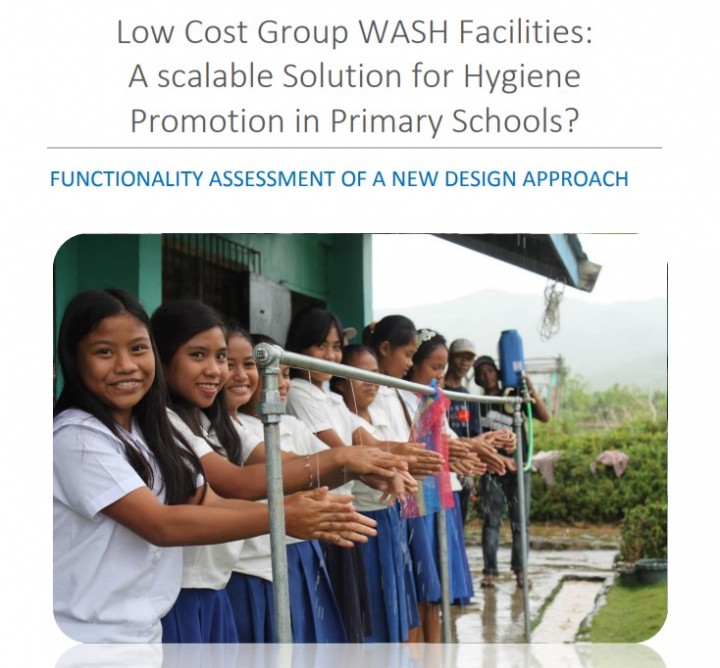Low Cost Group WASH Facilities: A scalable Solution for Hygiene Promotion in Primary Schools? - Functionality Assessment of a new Design Approach
Siewert, M. (2015)

Published in: 2015
Pages: 75
Publisher:
TU Berlin | Department of Health Care Management, Germany
Author:
Siewert, M.
Uploaded by:
SuSanA Admin
Partner profile:
common upload
2970 Views
69 Downloads
Location of library entry
Content - Summary
Diseases related to a lack of hygiene, such as diarrhea and respiratory infections, are still a leading cause of death for children living around the globe. Since the simple activity of hand washing with soap has a great impact on health and wellbeing, several international development programs support these hygiene activities in schools of developing countries. GIZ’s Regional Fit for School Program concentrates on simple and scalable activities in a daily school routine, to create long lasting hygiene habits and to promote a life with dignity. Health status and school performance are closely related: Students without infections or diarrhea can visit the schools more often, are more able to concentrate and have an overall better academic performance (UNICEF, 2012, p. 6).
The program aims to prevent infections with three supervised interventions in the school: Hand washing (1), tooth brushing with fluoride toothpaste (2) and bi-annual deworming (3). The hand washing and tooth brushing are organized in daily activities during the school day, supervised by the teacher. To perform these group activities, a group washing facility is needed, where several students can perform the hygiene interventions at the same moment. This saves time and is also more motivating for students and teachers. Several low cost group washing facilities are constructed by layman and workers in the Philippines, but many of them show challenges in durability and usability.
GIZ Regional Fit for School Program designed a new kind of group washing facility to face these challenges. It is called ‘Core Module’. The design is low in cost, uses a minimum amount of water and also makes a scale up to other areas possible, since it can be prefabricated in a workshop and be delivered to the point of use without a lot of effort.
This study assesses the functionality of the Core Module, to clarify chances and weaknesses of the design in preparation for a scale up to other countries, in two ways. First, the microbiological effect of the Core Module will be tested. Secondly, the technical performance of 100 Core Modules in 50 schools in the Philippines will be assessed. The findings of both parts will lead to an improved design.
Bibliographic information
Siewert, M. (2015). Low Cost Group WASH Facilities: A scalable Solution for Hygiene Promotion in Primary Schools? - Functionality Assessment of a new Design Approach. TU Berlin | Department of Health Care Management, Germany
Filter tags
Case studies in other formats East Asia & Pacific English Practitioners Recommended by SuSanA (other than SuSanA publications) Schools Sustainable WASH in institutions and gender equality (WG7)















